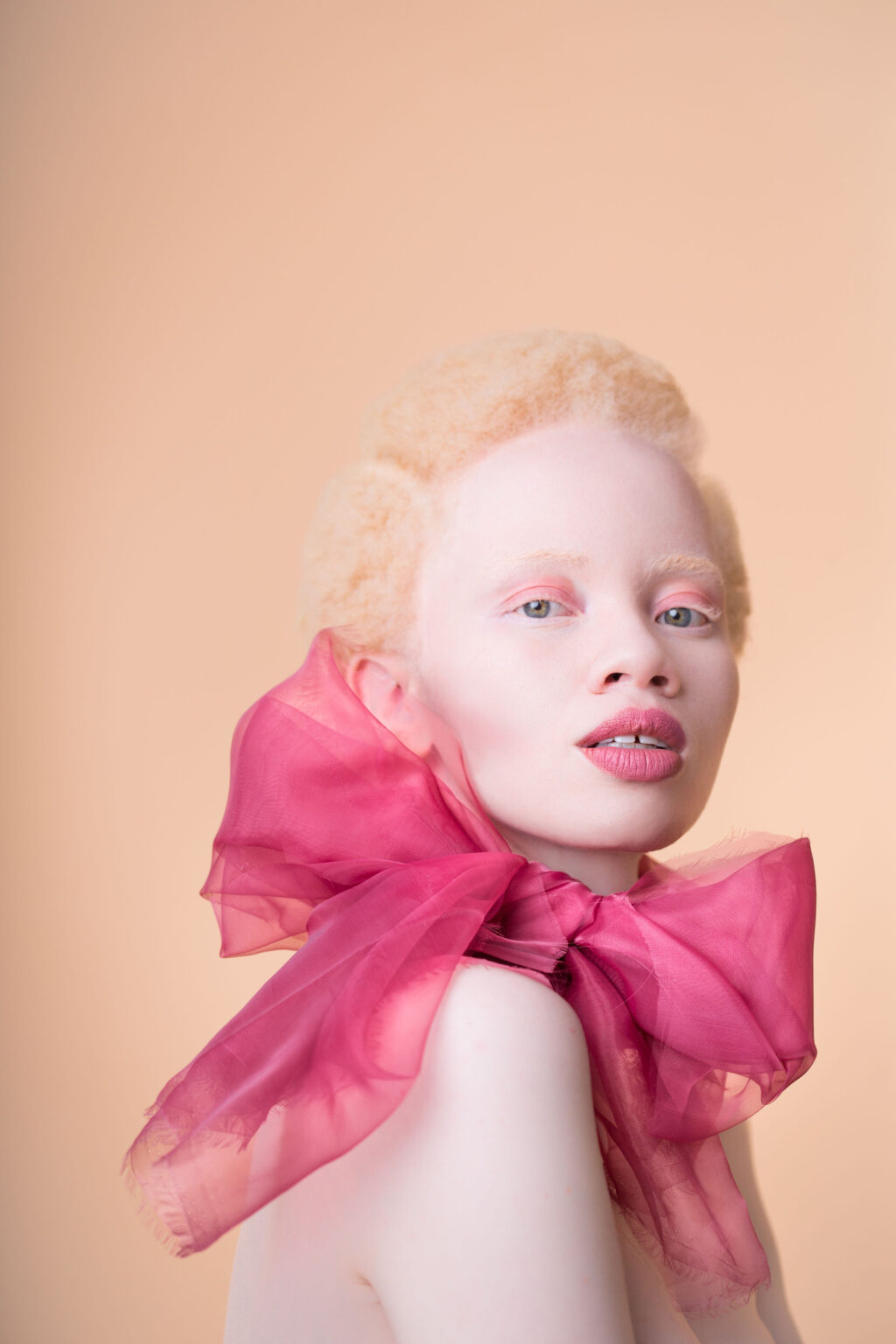PRESENTED BY Madison Ariani
WORDS BY Ebony Williams
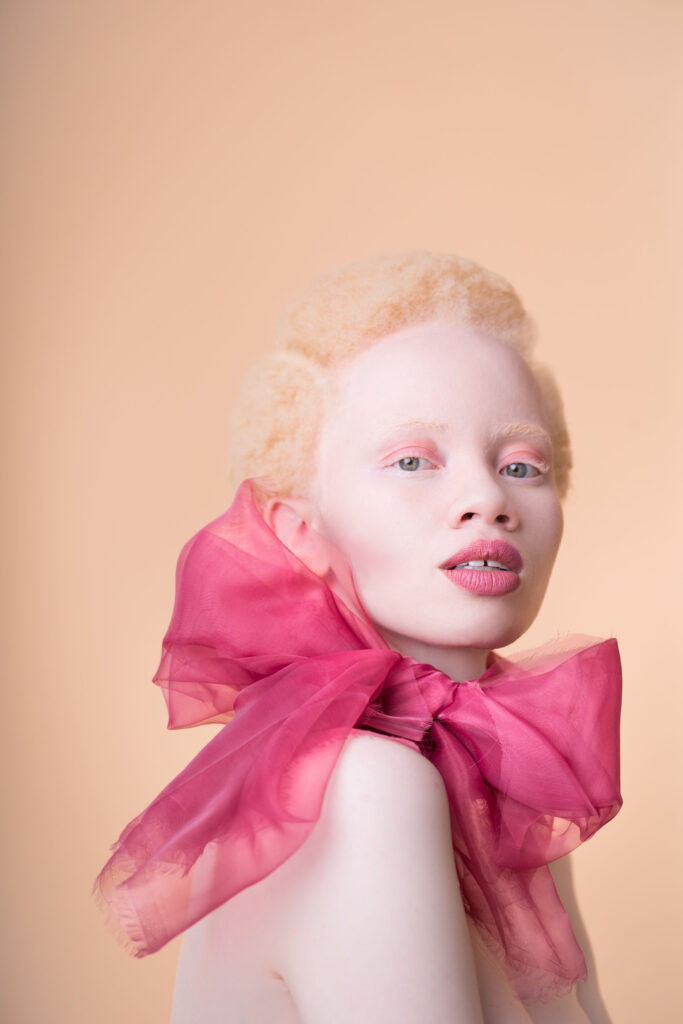
Styled by THANDO HOPA
When you Google Thando Hopa, she is described as the first woman with Albinism to grace the cover of Vogue. And while that is an impressive title to obtain, Hopa is much larger than a captivating headline. The South African model, activist, and former prosecutor is a force of nature. She is a powerhouse, reformer, and cultural icon whose dismantling the walls of the fashion industry and making others rethink their idolized perception of beauty. Not only does she step outside the box, but she creates a perfectly acceptable new one with no apologies. From the courtroom to the runway to a diversity of magazine covers, Thando Hopa is redefining the industry
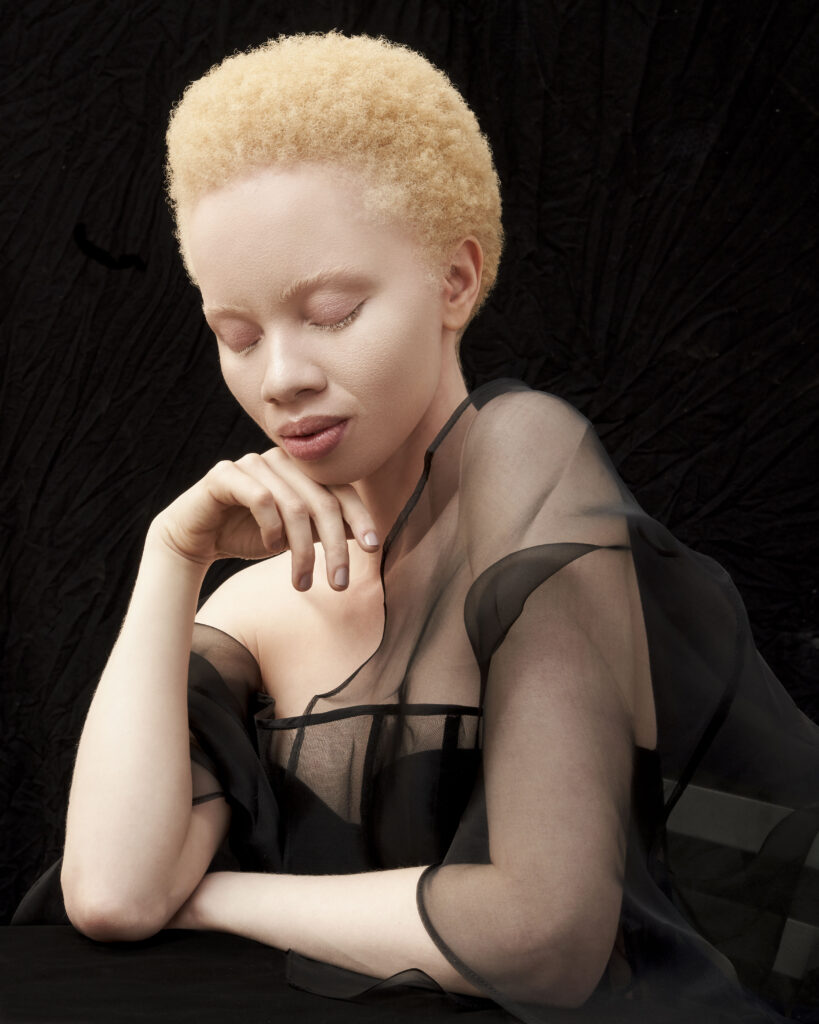
Styled by SAHIL HARILAL
We often hear the phrase: “beauty is in the eye of the beholder”. What does beauty mean to you? For me, it is a sense of enoughness, like feeling a level of completeness within yourself. If you had the power to rewrite the world, what would it look like?
The world would be able to embrace and accept the variations of the human body in whatever tone and shape that it comes in. There would be equal opportunity for participation, i.e., social, economic, and political participation of the various human existences that we have. And above all, it would allow agency because I believe that a lot of the time our agencies are limited to the options that we have. Some people have more options than others based on social construct and positioning. Those agencies are limited to most by design.
You are a former prosecutor, activist, and model—amongst other things, of course. With all that you have going on for you, what is your main goal in life— both personally and professionally? At the beginning of my career, I used to underestimate the power of the space I possess. So now, I’m trying to create options for underrepresented groups, to create some form of footprint for the industry. Collectively, I want to create options—not just culturally—but I want those options to also translate economically. If it doesn’t translate economically then it becomes extremely limited in its function.
There’s almost a poetic translation between being a model and activist. Do you think there is a difference between the two?
You know lately, I don’t like the term “activist” because I feel that there’s a box or expectation that you have to move within that space. But I think for me, in almost every profession, there’s activism, whether you’re a lawyer, model, or doctor because it’s a character trait. I think many people like writers, singers, or creatives find ways to change the world for the better using the spaces they are in. There is no difference because it is a character of what you do, not the institution you find yourself in.
We often find ourselves collaborating with certain people or charities that align with our form of activism. Tell me more about your African Fashion Legacy project. The African Legacy project was inspired by a conversation I had with my mother. She has this fabric from Southern Africa that we call Isishweshwe and we would get married in this fabric. You used it to make dresses for prominent events, but we didn’t know it came from Germany, and before that, it was found in the Netherlands and India. That fascinated me, so I spoke with my mentor who gave me the West African counterpart with Ankara fabric that originated from Indonesia. Then I startedmoving into this space where I tried to understand African textiles. These fabrics have layers of difficult history regarding colonization and so much more. I like to tell the stories of different things because it’s centuries of different weaving. This fabric is a historical document, telling stories about different cultures and people. It shows you the power of reinterpretation.
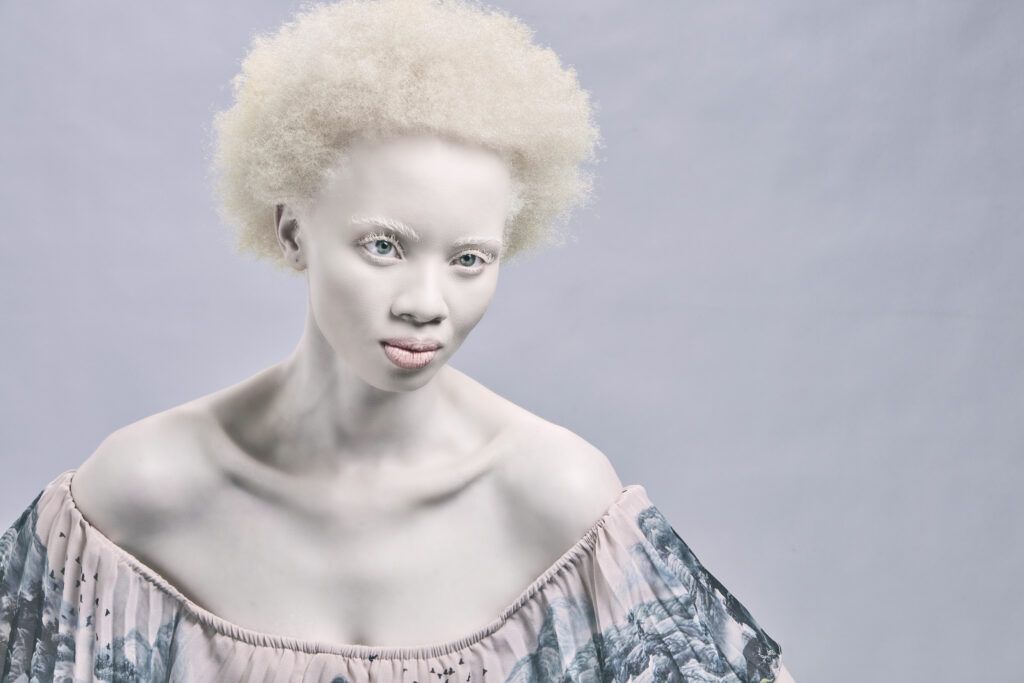
Styled by GERT JOHAN-COETZEE
The ability to create an amazing legacy based upon a conversation sparked by your mother is beautiful. What lesson(s) from your childhood do you find yourself coming back to as an adult?
My mother taught me to explore my imagination and she always eased the importance of courage. She was very courageous and joyfully courageous at that. She was so ready for opportunities that required her to be so. I however, was not that. Fear was a real thing for me and I felt it. She would say, “Fear is okay, but you can do this.” She would always tell me to stand up for myself. When I quit my job as a prosecutor, she’d say,“If you’re unhappy then it has no position in your life. If you feel like you’ve overstayed in a certain space, you cannot explain it to your future so leave it in your past.”
Did the people around you think you were crazy for leaving the courtroom to become a full-time model?
I started modeling when I started prosecuting, so I was doing both. Somehow fate caught what could have been called a “fall”. My modeling career picked up unexplainably because I wasn’t actively trying. I didn’t think that modeling was going to be a meaningful part of my career. I did it for representation at first, and then all of a sudden, I was doing an award-winning Audi campaign. That’s when I realized that modeling goes beyond basic representation.
You will be the guest of honor at the Colors annual event in Paris, sharing your views on the beauty of inclusion. How does it make you feel to know there are so many people who want to hear and learn from you?
I’ve never thought about how it makes me feel. I think it’s a couple of things. When I started modeling about ten years ago, this was unimaginable because there was such a huge absence of representation. For someone who was in the body of mine, in a place where I’m from, where they say various things to undervalue the continent to now, being invited to spaces I’m wanted in, is surreal.
What is it like maneuvering in the world as a person with Albinism?
We watch films, we listen to music, we wear clothes. We’re taught—very well—how to engage, talk, and act in certain constructs. We know the rules, but in underrepresented social constructs, we often don’t know the rules and that’s by design. Many people don’t know how to talk to someone with Albinism and they usually become offensive. That is why it’s important to have representation because, with that, we’ll get better at accessing each other and be better at connecting comfortably.
What would you tell those who are struggling with Albinism and their confidence?
First, I would say to find your tribe. We’re in a very individualistic culture and we always hear the phrase, “it’s all on you.” There’s pressure on people to have it all figured out. We are social beings, we are community-based beings, and we need each other. You have to harvest a certain environment around you and have people in your space who can receive you fully. Lastly, practice your enoughness. We are under attack, whether it be by our gender, race, class, or age, so remember your enoughness. When the mind is injured, you start to feel inadequate and resentful. You are beautiful enough. You are capable enough. You are good enough.
If you could tell your younger self one thing, what would it be?
Well, I never just tell one thing, but it would be to protect your optimism—whatever you do, whenever you need to birth things in the world and build a reality. Sometimes, when there is a constant conflict with what you want, it could kill your optimism. If you want to show up for life, you have to believe that things will change. Then I’d say that when people say, “life is short,” remember that life is also long. Understand the temporary nature of things. Understand the seasonal nature of things, that terrible things happen in your life, but the season in which those things happen, does end. Also, the wonderful things that happen in your life are also seasonal. You have to be ready for the seasons. Sometimes you’re the coolest kid in high school and sometimes you’re not. The point is that high school is not the epitome of your entire life. It’s seasonal.
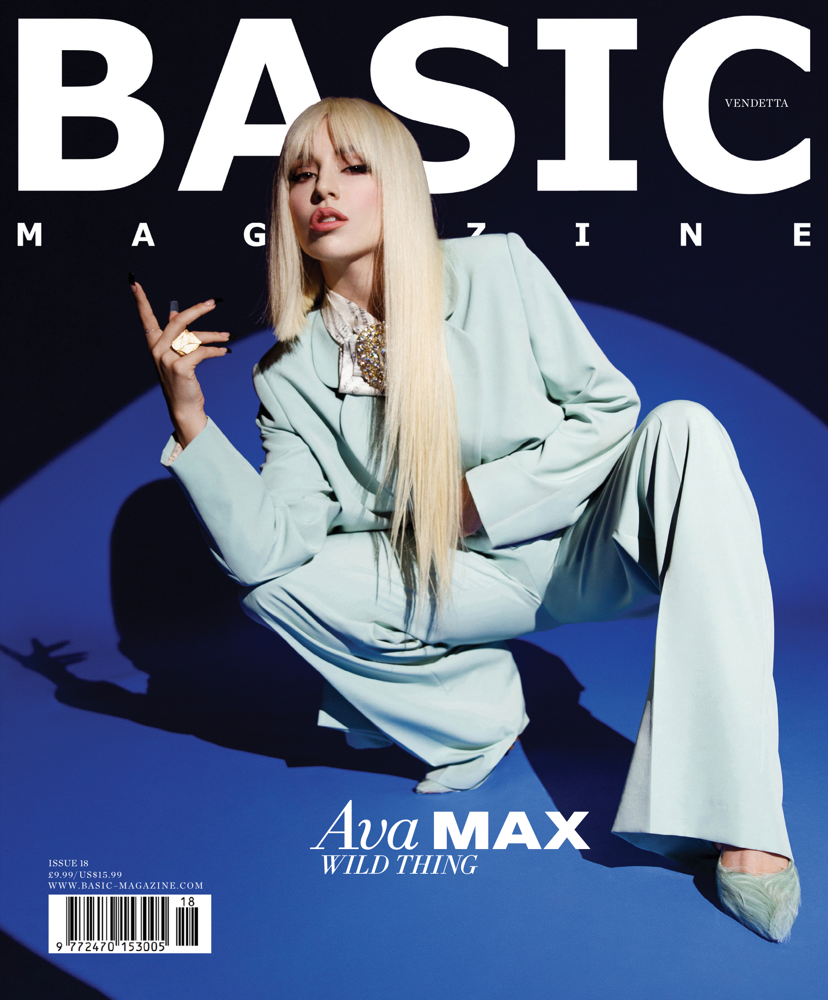
You may also like
-
SUUVI – A Journey Through Sound and Self
-
ANNA KOSKAROVA: To Be Seen is a Universal Love Language
-
Isn’t It Funny? HALEY KALIL’S Unscripted Story
-
Staying Loud, Staying True: Spacey Jane’s Evolution from Perth to the World
-
Reframing Narratives with KATHERINE FLYNN
-
FIGHT TO THE OTHER SIDE: Hilary Roberts on Suffering, Freedom, and Sharing her Mafia Gifts
